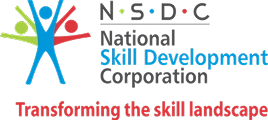Course Design By
Nasscom & Wipro
+ More Lessons
Course Design By

Nasscom & Wipro
Course Offered By

Croma Campus

Stories
success
inspiration


career upgrad


career upgrad


career upgrad


career upgrad
05-Jul-2025*
07-Jul-2025*
09-Jul-2025*
05-Jul-2025*
07-Jul-2025*
09-Jul-2025*

You will get certificate after
completion of program

You will get certificate after
completion of program

You will get certificate after
completion of program
in Collaboration with






Empowering Learning Through Real Experiences and Innovation

we train you to get hired.

Phone (For Voice Call):
+91-971 152 6942WhatsApp (For Call & Chat):
+91-971 152 6942Get a peek through the entire curriculum designed that ensures Placement Guidance
Course Design By


Course Offered By

Ready to streamline Your Process? Submit Your batch request today!
Fundamental knowledge of Business Central and its functions is necessary for getting the most out of the MS Dynamics 365 BC techno-functional training program
It will take approximately 35-45 days to complete the techno-functional training program
On average, a fresher can earn around ₹ 6,00,000 -₹8,00,000 as a techno-functional consultant
Croma Campus provides physical as well as online classes to students. But currently, we are only giving online classes to students due to government restrictions
The curriculum of the course is designed keeping in mind the changing demand of the corporate world. Moreover, the curriculum includes a live project, lots of assignments, quizzes, etc

FOR QUERIES, FEEDBACK OR ASSISTANCE
Best of support with us
For Voice Call
+91-971 152 6942For Whatsapp Call & Chat
+91-9711526942